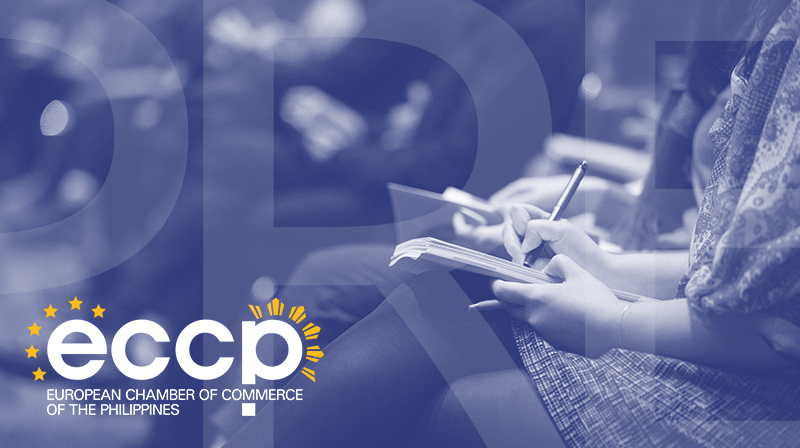
Manila, Philippines – The European Chamber of Commerce of the Philippines (ECCP) welcomes the resumption of Free Trade Agreement (FTA) negotiations between the Philippines and the European Union (EU), set from 14 to 18 October 2024 in Brussels, Belgium. The FTA is expected to boost bilateral relations and secure preferential market access for the Philippines, with the Department of Trade and Industry (DTI) targeting a conclusion by 2027.
The DTI has emphasized a three-year window for the FTA's completion, especially as the expiration of the Generalized Scheme of Preferences Plus (GSP+) in 2027 could affect key exports. Currently, 23% to 28% of Philippine exports to the EU benefit from GSP+. A study by the International Trade Centre also highlights the EU’s $8.3 billion untapped export potential for the Philippines, reinforcing the need for timely FTA completion.
As a major foreign direct investor in ASEAN, the EU holds substantial investment potential for the Philippines. However, the country currently attracts a small portion of this, leaving room for growth. The FTA could increase high-quality investments, aligning with efforts to improve the investment climate.
Key sectors poised for growth under the FTA include agriculture, garments, digital trade, renewable energy, and minerals. The Confederation of Wearable Exporters of the Philippines estimates that the FTA could generate between 120,000 and 250,000 new jobs within the first few years of its implementation. The Philippines' USD 50-billion IT-BPM industry and electronics sector are also expected to benefit from expanded access to EU markets.
The ECCP has been instrumental in advancing the FTA, actively publishing position papers and participating in high-level discussions with policymakers. Recently, the Chamber co-organized a business event with European Commission President Ursula von der Leyen and held talks with EU FTA Chief Negotiator Ms. Dora Correia in early June 2024.
As negotiations advance, the ECCP emphasizes the need to reduce bureaucratic barriers, modernize customs regulations, and foster sustainable, resilient supply chains. These measures will not only align with the European Green Deal but also bolster the Philippines' economic growth and competitiveness within ASEAN.
The ECCP remains committed to working with relevant stakeholders for a swift and favorable outcome to the FTA negotiations, recognizing its potential to transform the Philippine economy.